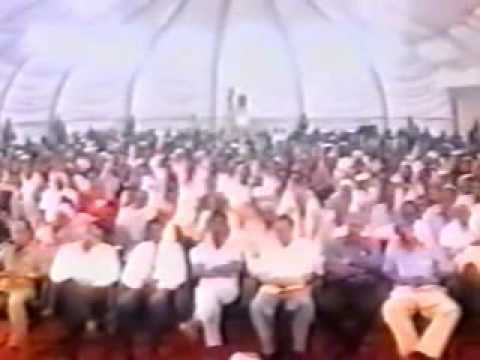Dr. Abdurahman Abdullahi Baadiyow
Somali people gathered in the town of Arta in Djibouti in 2000 to reconstitute the collapsed Somali state in 1991. This Peace and Reconciliation Conference (PRC) was sponsored by the President of Djibouti, Ismael Omar Guelleh, after many failed world-driven conferences since 1991. This PRC was a paradigm shift in approaching Somalia’s fatal condition of civil war and statelessness. The PRC was driven by civil society instead of warlords and was open to the participation of all segments of society. This PRC accepted the Somali reality of being clans and Muslims, the two fundamental pillars of the Somaliness which were suppressed during the military regime (1969-1991).

The Transitional National Charter (TNC) of 2000 was founded on these two elements. Thus, the PRC adopted the innovative idea of clan-based power-sharing of 4.5, which was an anomaly vis-à-vis modern state-building based on citizenship. The conference also accepted Islamic laws as the ultimate reference to all legal matters. Nobody ever alleged that this clan power-sharing was a perfect model for Somali state-building; instead, it was part of the temporary reconciliation arrangement accepted by the clan representatives. Many scholars criticized the clan power-sharing model; however, an alternative version did not get traction in the last 22 years.
In the last 22 years, Somali state-building experienced tumultuous phases and endless conflicts and regime changes due to numerous factors. These factors include the impact of 9/11, the Embakasi conference in Kenya (2004), the emergence of the Union of the Islamic Courts (2006), the Ethiopian military intervention (2006), the empowerment of the Islamist leadership (2009), the introduction of the AU Mission (Amisom), and consolidation of Al-Shabaab.
The government of Somalia received international recognition in 2013 after 22 years since its collapse in 1991. Since then, the state-building process took new impetus under President Hassan Sheikh’s term by haphazardly establishing FMS in south-central Somalia. The first term of President Hassan Sheikh (2012-2017) and the time of President Mohamed Farmajo (2017-2022) continued the clan power-sharing model with slight modifications. However, this system reached its abysmal degradation with the extensive commercialization of the selection/election process in 2022. In this selection/election exercise, Federal Member States (FMS) presidents usurped clan leaders’ prerogative of selecting members of their clan parliamentary representative. This process almost brought Somalia to the brink of a renewed conflict.
At present, Somalia stands at a crossroads in choosing between continuing the previous failed model of clan power-sharing or embarking on a new state-building direction. Recycling the previous clan power-sharing model will not produce, for sure, a functioning and stable Somali state. This process has proven its dysfunctionality and propensity to conflict. Moreover, the significant security challenges of al-Shabaab and an incomplete provisional Constitution that requires consensus of the FMS and the Federal State to be completed are a recipe for instability and conflicts.
The only alternative model for clan power-sharing is a direct one person- one vote (1p1v) election. However, this model requires stability, a new political dispensation among national and FMS leaders, and the public’s buy-in. The primary challenge of conducting 1P1V elections is the different terms of elections of the FMS and the short timeframe to prepare for the 1p1v election. Indeed, the 1p1v at the national level could not take place without initially conducting elections at the district levels and FMS levels. Therefore, a new political dispensation must consider the timeframe for the stability of FMS within which the Provisional Constitution could be finalized, regions liberated from al-Shabaab, district councils formed, political parties and election laws adopted, and 1p1v elections conducted. Moreover, the national polls of 1p1v could not occur without sufficient preconditions such as political, technical, economic, and security improvement.
Moving away from the selection process and clan power-sharing requires the Somali political elites to ponder beyond changing presidents with presidents and parliamentarians with others while the dysfunctional system remains intact. It is time to realize that the system created during the Arta PRC that continued for 22 years had reached its terminus, and its expediency took its last breath in 2022. It is time to adopt a new popular election system that normalizes the state-building process.
The questions that beg answers from the Somali intelligentsia are how to break this vicious cycle, move away from the Arta deal, and establish a politically stable, economically sufficient, and socially cohesive Somali state.
Dr. Cabduraxmaan Baadiyow
Email: [email protected]
———–
Related articles
–The Arta Peace Process by Asha A. Abdalla
– Soomaaliya kadib Carta: Kaalinta Maqan ee Hoggaamineed W/Q: Cabdifataax Xasan-Barawaani
We welcome the submission of all articles for possible publication on WardheerNews.com. WardheerNews will only consider articles sent exclusively. Please email your article today . Opinions expressed in this article are those of the author and do not necessarily reflect the views of WardheerNews.
WardheerNew’s tolerance platform is engaging with diversity of opinion, political ideology and self-expression. Tolerance is a necessary ingredient for creativity and civility.Tolerance fuels tenacity and audacity.
WardheerNews waxay tixgelin gaara siinaysaa maqaaladaha sida gaarka ah loogu soo diro ee aan lagu daabicin goobo kale. Maqaalkani wuxuu ka turjumayaa aragtida Qoraaga loomana fasiran karo tan WardheerNews.
Copyright © 2024 WardheerNews, All rights reserved


